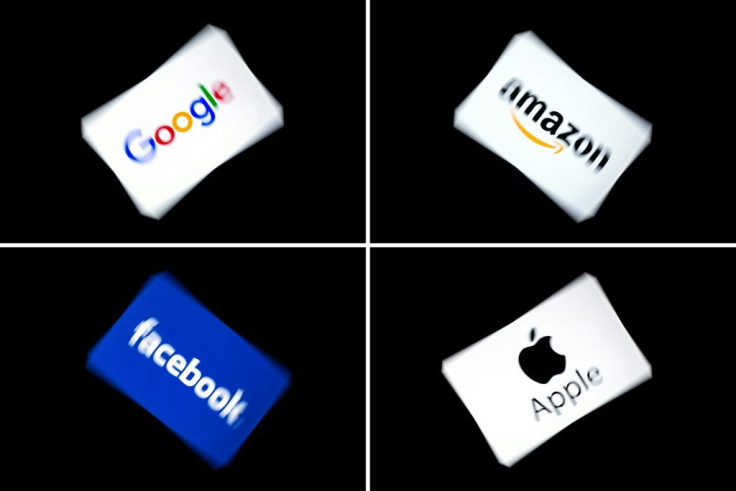France Risks US Ire With Vow To Impose Digital Tax This Year
France will enforce a new digital levy for online technology giants this year, breaking a truce with Washington over the long-running tax fight that could prompt a round of punitive US tariffs on French goods.
"The companies subject to this tax have been notified," a French finance ministry official said Wednesday, referring in particular to Google, Amazon, Facebook and Apple, collectively referred to as the "GAFA" in France.
A deposit on the estimated taxes owed will be required in December, with the remainder due next year, the official said.
US President Donald Trump has assailed the tax as unfairly targeting American tech heavyweights, and last year threatened import duties of 25 percent on $1.3 billion worth of French products, including cosmetics and handbags by renowned brands.
The US Trade Representative did not respond to a request for comment from AFP.
France and other European countries are taking action after intense public pressure to make US multinationals pay a larger share of their revenues in taxes in the countries where they operate.
Under EU law, companies in the United States can declare profits from across the bloc in a single member state -- and most pick low-tax jurisdictions such as Ireland or the Netherlands.
In 2019, President Emmanuel Macron's government enacted a three-percent levy on the profits from providing online sales for third-party retailers -- such as Amazon's Marketplace -- as well as on digital advertising and the sale of private data.
That year the taxes brought in around 400 million euros ($475 million), an amount expected to grow steadily in the coming years.
But Paris struck a deal with Trump's administration last year to suspend collection of the levy while seeking a global digital tax deal under the auspices of the Organisation for Economic Cooperation and Development (OECD).
Progress on a deal has been elusive, however, and in June, US Treasury Secretary Steven Mnuchin called off the talks, which were being pursued by 137 countries with a target of securing an accord by the end of this year.
In October, the OECD acknowledged that no deal was likely before 2021, largely because of US opposition to the proposals.
"We suspended the collection of this tax so that the OECD talks could finish," French finance minister Bruno Le Maire said last month.

"These talks have failed, so we will collect taxes from these digital giants in December," he warned.
Britain, Spain, Italy and other European countries have also announced digital taxes to give them a bigger share of the profits that tech firms make from their citizens.
The surge in sales for online retailers during the Covid-19 lockdowns across Europe this year raised pressure on governments to take a tougher fiscal stance, not least to help pay for massive aid programmes for businesses forced to close.
But France has spearheaded the effort to wrest a compromise from Washington, and Wednesday's announcement might reflect hopes in Paris that the incoming administration of Joe Biden will prove more amenable to a global deal.
"The Covid-19 pandemic makes the need for a solution even more compelling," the OECD said last month.
It added that failure to reach a comprehensive accord would encourage more countries to take unilateral action that would only stoke trade tensions further.
"We remain supportive of the OECD plan," the French finance ministry official said, adding that France also hoped to see a common European position on taxing digital giants in early 2021.
The OECD proposals address two issues -- how to tax firms in every country where they operate, and how to ensure each country gets a fair share of a multinational's taxes.
An accord would likely set a minimum base tax, potentially of 12.5 percent, that would apply to every company no matter where it is based or declares its income.
The digital tax fight is just one front in the trans-Atlantic trade battle launched by Trump -- last year his administration imposed 25 percent tariffs on wine, cheese, olives and other European delicacies in a battle over subsidies to planemaker Airbus.
The EU responded this month with its own round of tariffs on US imports after the World Trade Organization faulted Washington over state aid for Boeing.
© Copyright AFP 2024. All rights reserved.




















